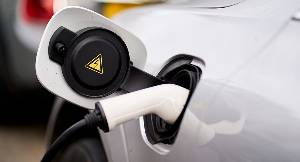Ghana’s Electric Vehicle Rollout Faces Challenges Due to Skills, Infrastructure Gaps
Ghana’s ambitious push to adopt electric vehicles (EVs) as part of its commitment to sustainability and carbon reduction is encountering significant hurdles. Despite the growing global interest in electric mobility, the country’s transition to EVs faces challenges in two key areas: a shortage of skilled workers and gaps in the necessary infrastructure.
One of the primary obstacles is the lack of skilled professionals capable of managing and maintaining electric vehicles and their charging stations. While the automotive industry in Ghana has traditionally been dominated by internal combustion engine (ICE) vehicles, there is limited local expertise in the electric vehicle sector. Training programs for engineers, technicians, and mechanics are still in the early stages, with few institutions offering specialized courses in EV technology. As a result, the country risks becoming dependent on foreign experts for maintenance and repair, raising costs and slowing the pace of EV adoption.
Moreover, the infrastructure required to support widespread EV use is underdeveloped. Ghana has made strides in introducing a few EV charging stations in major cities like Accra, but these are still insufficient to meet the needs of a growing EV market. Public charging networks are sparse, and the country’s power grid is not fully equipped to handle the increased demand for electricity that widespread EV adoption would entail. Without a robust charging infrastructure and improvements to the electricity grid, potential EV owners may be hesitant to make the switch, fearing that they will face long wait times or unreliable access to charging stations.
Additionally, the cost of electric vehicles remains a barrier. Although EVs are becoming more affordable globally, the initial purchase price in Ghana is still relatively high, especially for the average consumer. Government incentives, such as tax breaks or subsidies, are necessary to encourage mass adoption.
In conclusion, while Ghana's electric vehicle transition holds promise for reducing carbon emissions and fostering sustainable growth, addressing the skills gap and infrastructure deficiencies will be crucial for the success of this green revolution.



